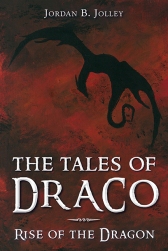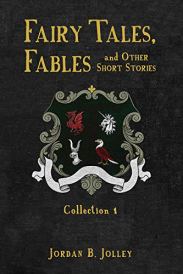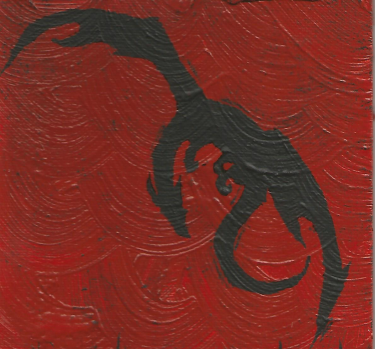I’ve mentioned publicly on many occasions that Fantasy isn’t exactly my “ultimate” favorite genre in literature, even though my own works thus far are fantasy. This doesn’t mean I don’t like the genre; there are many fantasy books out there that I deeply respect. My critical thoughts on a book are based more on the book itself than merely the genre. That being said, the reason why I don’t find the fantasy genre in-and-of-itself an exceptional favorite of mine is because even though there are plenty of well-done fantasy books/series in literature, fantasy is also easily susceptible to poor writing. In this post, I will be discussing several different tropes in the genre that I feel are either done too often, are poorly executed, or both (keep in mind that certain tropes are fine when done correctly).
- The So-Called “Homage” to the ‘Lord of the Rings‘
When I put together various elements in Elsovian-lore, I like to seek influence from the traditional lore of eras past. For the most part, I try to avoid elements that have been established by recent writers like Tolkien or Rowling. It’s not that I dislike 20th century lore; on the contrary, I deeply respect it. There’s no doubt that Tolkien, Lewis, Jordan, and others set many elements in motion regarding modern lore, and that many things they have established are quite popular in 21st century lore (just take a look at ‘Warcraft’ or ‘Dungeons & Dragons’ for example). However, I find that many modern fantasy books bear far too resemblance to these preceding works. Some books I have read are almost complete copies of ‘The Lord of the Rings’ or ‘Star Wars’ or whatever is popular. Many of these writers usually claim that they are either “inspired” or that they were writing a “love letter” to those who created such works. I’m sorry to say this, but copying someone’s work is not inspiration; you are just trying to capitalize on their success by passing their work off as your own. I have even read quotes of writers claiming that “they are the next Tolkien” or “George Lucas”. The fact is, their works are done. It’s out there. You can’t be the next Tolkien because there’s already been a Tolkien… and saying “all ideas are already taken” is a cheap cop-out of lazy writing. Can you get influence from earlier works to put in your own? Of course! Having someone else’s work shape yours what keeps literature moving through the ages, but it is not an excuse to copy someone else’s work.
2. “…whenever you notice something like that, a wizard did it!”
Even though your work may be fantastical, and contains elements we can’t comprehend in reality, your story still has to be logical and believable. You cannot simply use magic to justify a plot hole just so it’s convenient for the plot. It may seem strange, but the most common place I see this (in both literature and cinema) is when a character falls either a great distance or down a drop with many deadly hazards in the wake; and this trope seems to be getting more common in the last few years. Whether you justify a plot hole with magic, or luck, or providence, that is, again, a cop-out for lazy writing. If you’re going to have magic or providence interfere with a character’s fate, make sure it is believable and logical, or else the lack of creativity will stand out like a sore thumb.
3. Our Young Hero is Trapped in this Boring World of Ours, Until One Day He Gets Transported to a World of Dragons & Magic!
In many cases (the ‘Harry Potter’ series, for instance) this element in fantasy can work really well. But again, I find it overdone, and overdone poorly, especially in Y/A books. I will admit that ‘The Tales of Draco’ somewhat does this; but the fact is, I do not portray “our world” as boring. Jacob doesn’t turn into a dragon and get sucked into a fantasy-world by the end of the first chapter. To me, I think it’s the stigma against “reality” that I don’t like… many of us feel like we are trapped in a boring and wicked world and that this “magical realm” is what brings adventure and meaning in life. The reader gets it; that’s why the book exists in the first place. Perhaps it’s just me, but I find it a little annoying when people imply that reality is boring. It’s not. Adventure is everywhere; you just have to look for it. I feel like I can handle this trope a little more if we can just appreciate the world we live in to at least some degree. I feel like the ‘Stoneheart’ trilogy by Charlie Fletcher is a good example on how to correctly approach this: the protagonist (George if I remember) gets taken to another layer of reality after damaging a statue out of rage. This entire set-up takes place in the first few chapters, but Fletcher is not overzealous with “how boring our world is”. Good fantasy does not delude us from reality, but rather prepares us to face it.
3. Y/A Fiction is No Excuse For Lazy Writing
This one I feel is quite obvious: A novice writer may craft a lazily-plastered fantasy story filled with cliches and the tropes mentioned above. Just because your book is for young adults does not mean your writing-quality’s bar is set low; that is yet another cop-out. No matter your target audience, your story must be well-written.
4. Purple Prose
This is very common in fantasy: purple prose, or flowery language. Personally, I don’t mind this sort of prose in literature, just as long as it’s done with moderation. It can be easy for one to be caught up in trying to make your story as flowery as possible (trust me, I know), so-much-so that it can get in the way of good storytelling. Of course every writer has his own voice and his way of expressing himself. Some seem quite fond of similes; others take pride in archaic language. But this kind of prose can only work when it carries one key element: emotion. Be sure not to be overzealous with literary devices, or else your story will look immature. My favorite kinds of books, be it fantasy, historical fiction, or whatever, are those with emotional narratives. Never forget that key.
5. Finally & Most Importantly… The Glory of War!
I absolutely HATE IT when fantastical stories do this. Yes, violence is quite common in fantasy, and it is true that some books are more descriptive of the violence than others. Violence can be necessary when writing a story, especially if it’s a part of your story’s theme. ‘The Tales of Draco’ has its fair share of death and violence, too. But what grinds my gears is when the story seems to glorify it, as if the author relishes in the sight of blood, gore, and death. If you write all these stories about how epic and wonderful wars and violence can be, and yet you lose your nerve when thinking about ongoing violence in the world, then you are a coward! If you do somehow like to see excessive violence up-close, then something is wrong with you! It’s a lose-lose deal if you glorify war! I’m sorry if this sounds harsh, but it’s true! It really annoys me when I read a fantasy book and the author goes to great lengths describing the brilliance and beauty of war. And it happens everywhere! I hate it!
It is true, however, that many fantasy books depict violence as an important theme. I can’t think of any better example than ‘Redwall’ by Brian Jacques. Practically every book in that series has a war as the central plot; and yes, there is blood, there are broken bones, and there is even decapitation, not to mention the painful loss of friends and family; but not once does Jacques glorify these elements. On the contrary, he uses such descriptions to prove a point of the emotional cost of war, especially when you have no choice but to fight. In relation, ‘The Tales of Draco’ does and will have war as part of the central plot, but only because of the themes that will be expressed (read ‘The Six Pieces’ to see my point). I’ve already discussed this matter in an earlier post; you can read more about that here.
These are only a few tropes, and one may even find them, to some degree, in my own works. I wrote my first novel at fifteen, so of course I was susceptible of novice errors in the first draft. Three of my books have now been published thus far and I am still in my early twenties. I know my writing won’t suit all, and I’m by no means claiming it is perfect; but I take pride in my work, and it is just the way I want it to be. As a writer, you have an entire universe at your command, where the only limit is your imagination. If you plan to become a writer, make sure you know what you are doing; that way your book is in the best form it can be.
–
SPECIAL ANNOUNCEMENT: ‘The Tales of Draco – The Six Pieces’ is now coming in hardback! The book is already available in paperback, but I personally find hard covers more to my liking. And, as it is released, the price for the paperback version will be dropped in personal sales!
–
I’m Jordan B. Jolley, author of ‘The Tales of Draco’ and ‘Fairy Tales, Fables & Other Short Stories’. These books go into the depths of folklore and display to the reader what life is really about. Magic spells and creatures of legend are only the beginning of what you may find within their pages. I promise you that if you read these books, they will change the way you see your world. (Click here if you are interested in getting a signed copy.)
The Tales of Draco – Rise of the Dragon – book one (click here)

The Tales of Draco – The Six Pieces – book two (click here)

Fairy Tales, Fables & Other Short Stories – Collection 1 (click here)



One thought on “Things to Notice When Writing Fantasy…”